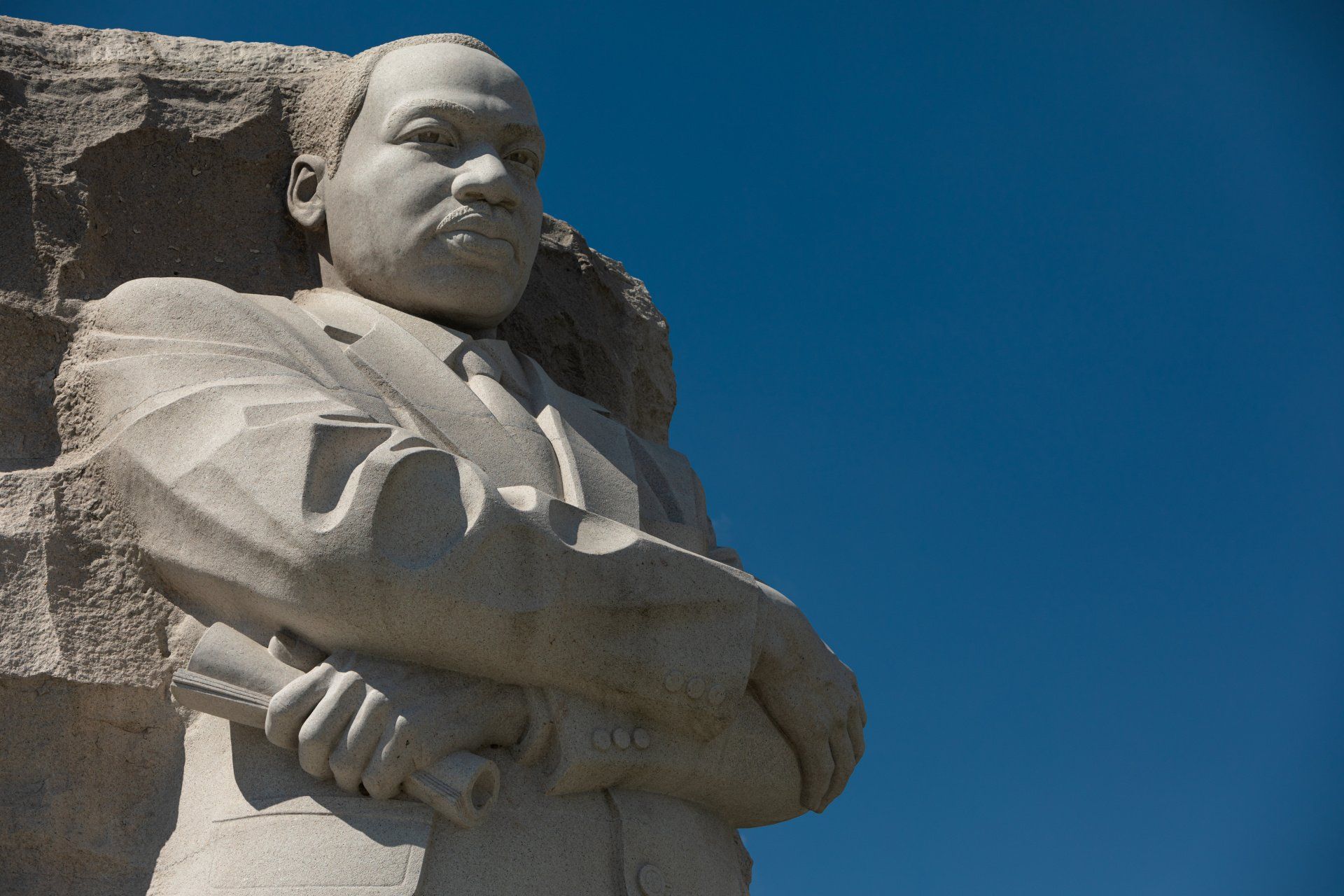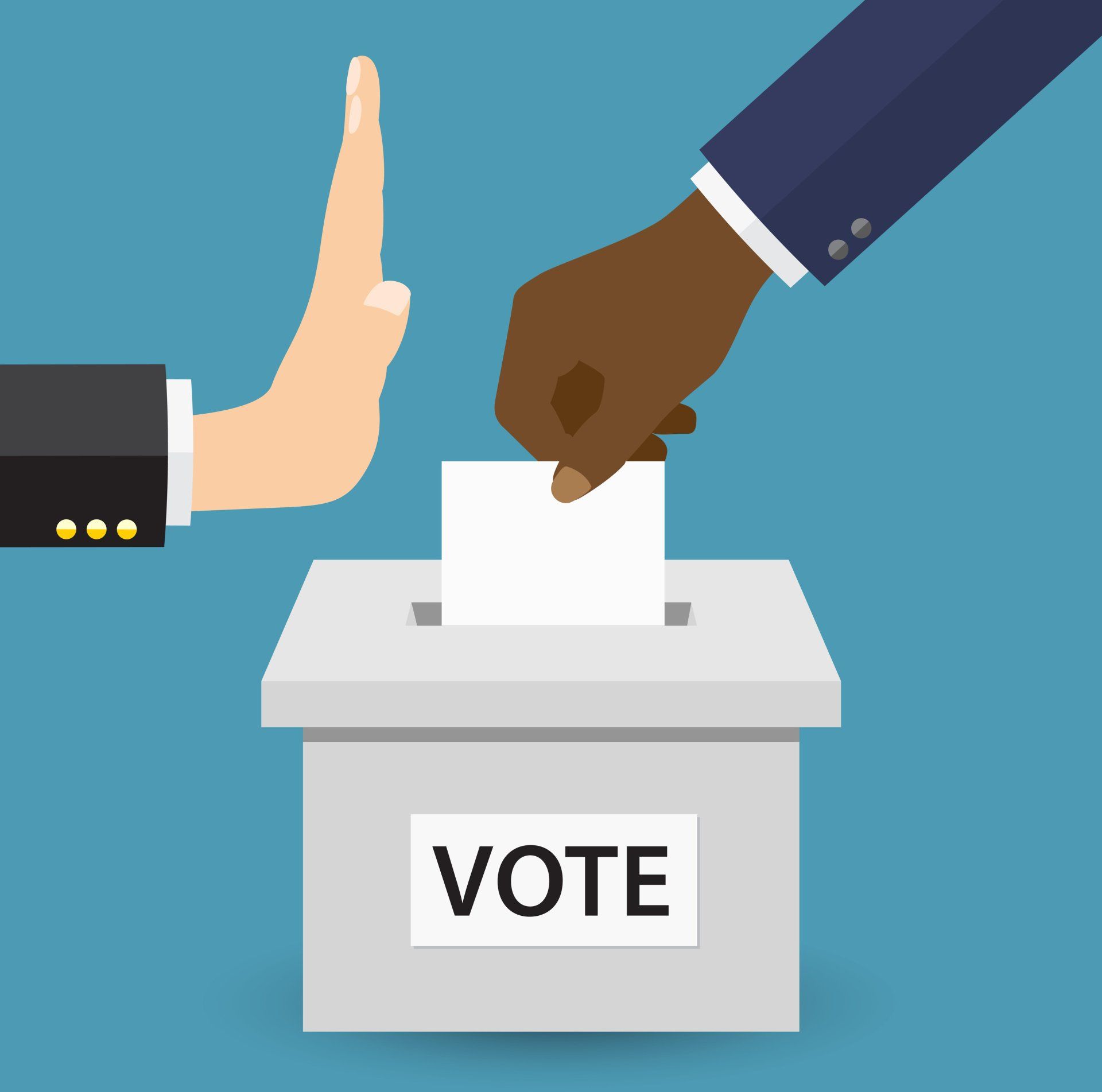BLOG
Blog

02 Mar, 2022
There is a phrase I am sure many of you have heard at one time or another: “hope springs eternal.” Another way to put it is a famous literary query “if Winter comes, can Spring be far behind?” Sixty-five years ago this May 17th, na-tional civil rights leaders called for a rally on the steps of the Lincoln Memorial hoping to get the federal government to fulfill the promise of the Brown v. Board of Education decision with supporting enabling legislation (more specifi-cally the Civil Rights of 1957 which, by the way, was filibustered to defeat by Senator Strom Thurmond). A very young Martin Luther King, Jr. joined the litany of presenters that day as the last speaker. The very young King noted that the monumental Brown decision was met with opposition in open defiance from many states. One form of opposition he addressed was “all types of conniving methods that are still being used to prevent Negroes from becoming registered voters.” He stated that the “denial of this sacred right is the tragic be-trayal of the highest mandates of our democratic tradition.” The defenders of voting rights today echo the same message in their challenges to restrictions being legislated al-most daily across the country. Decades before King, American writer and bard, James Weldon Johnson, wrote about democracy in America stating that “[t]his country can have no more democracy than it accords and guaran-tees to the humblest and weakest citizen.” Both King and Johnson spoke of the fulfillment of the American govern-ance experiment as having to be inclusive and non-judgmental. They more than intimated that America cannot suc-ceed if it does not allow all its citizens to have a voice. King stated, “Give us the ballot, and we will no longer have to worry the federal government about our basic rights. Give us the ballot, and we will no longer plead to the federal government for passage of an anti-lynching law; we will by the power of our vote write the law on the statute books of the South and bring an end to the das-tardly acts of the hooded perpetrators of violence. Give us the ballot, and we will transform the salient misdeeds of bloodthirsty mobs into the calculated good deeds of orderly citizens. Give us the ballot, and we will fill our legislative halls with men of goodwill and send to the sacred halls of Congress men who will not sign a “Southern Manifesto” because of their devotion to the manifesto of justice. Give us the ballot, and we will place judges on the benches of the South who will do justly and love mercy, and we will place at the head of the southern states governors who will, who have felt not only the tang of the human, but the glow of the Divine.” Arguably, the United States Constitution was intended to be the beginning of a nation’s evolution not a marker in time to fit the interests of those “in charge” at the time. I say arguably because so many of the founding fathers and their successors were purveyors of our country’s original sin. Contradictions have ravaged our past. But over time however, amendments have been adopted to right the wayward ship. And it is those amendments that have ex-panded the nation’s contract with its citizens that all men are created equal and are endowed with inalienable rights to life, liberty, and the pursuit of happiness. Voter suppression is hands down a breach of that contract. If one’s Second Amendment right to bear arms is con-sidered untouchable so should be another’s right to participate in structuring their governance. That is, a voter has the right to enter a polling place with the expectation that their vote can and will make a difference. If that voter is left with the impression in any way that the exercise of the right is mathematically insignificant for any reason other than their inability to rally like minded voters, then a breach has occurred. A breach of that magnitude is un-American. If hope truly springs eternal, it is because each election season has meaning for more than a privileged few. (References to Dr. King can be found at the King Research and Education Institute at Stanford University)

01 Oct, 2021
I am going to start this article with a set of direct quotes from the website of the US Census. Here goes: “In the summer of 2020, the Census Bureau launched a new and innovative data tool for national agencies and local communities, the Community Resilience Estimates (CRE) . The CRE tracks how at-risk every single neighborhood in the United States is to the impacts of COVID-19 and other local disasters, by measuring the capacity of individuals and households at absorbing, enduring and recovering from the external stresses of the impacts of disaster.” ( https://www.census.gov/programs-surveys/community-resilience-estimates.html ) The Bureau adopted the American Community Survey (ACS) risk factors for households and individuals to establish their vulnerability measures. “Risk factors from the 2019 ACS include: ✓ Income to poverty ratio ✓ Single or zero caregiver: household ✓ Crowding ✓ Communication barrier ✓ Households without full-time, year round employment ✓ Disability ✓ No health insurance ✓ Age 65+ ✓ No vehicle access ✓ No broadband internet access” The site’s interactive tool is https://experience.arcgis.com/experience/b0341fa9b237456c9a9f1758c15cde8d/ .

02 Sep, 2021
Recently, you may have heard politicians and pundits say that systemic racism is non-existent – not now or ever. In politics something is thought to be systemic when it affects the whole instead of just parts. Govern-ment by its nature is a construct for dealing with the whole. Our founding documents speak to the “we” not the “me” when it comes to intent and purpose. The Bill of Rights ultimately address individual liberties within the framework of a “we” set of boundaries. To that end, when government acts, it does so with the intent of impacting the whole of society for its perceived well-being. August 2nd was the one hundredth and twenty-first anniversary of “the day North Carolina approved a con-stitutional amendment that required residents to pass a literacy test in order to register to vote. Under the provision, illiterate registrants with a relative who had voted in an election prior to the year 1863 were exempt from the requirement …. The effect of racially discriminatory voting laws in North Carolina and throughout the South would persist for generations, effectively disenfranchising Black people throughout the region with little federal intervention until the passage of the Voting Rights Act in 1965.” (From the Equal Justice Initiative’s “History of Racial Injustice” calendar 2021). Where We Are Today Here we are in 2021 still confronted with efforts to deny or minimize voter participation in the foundational process that lends itself towards mass inclusion. It is as systemic now as it was in 1900. Government officials creating and enforcing restrictive measures to lessen the rights of the minority to participate in the voting. How significant is the vote when the opportunity to do so is limited to a privileged few? Obviously, very significant because if it were not the system would not be trying to protect itself from fair play and inclusion. Keep in mind that the vote in 1900 was just two years after the white-supremacist-led insurrection in Wilmington, North Carolina. Keep in mind many of the masterminds of that insurrection went on to become statewide and district-elected officials. Keep in mind that certain insurrection planners went on to serve in the President’s administration. Keep in mind that the primary source of information and opinion at that time manipulated the press to perpetuate a false narrative. Keep in mind that the cumulative effect of the placement and perpetuation of the individuals involved and their manipulation of the media led to sixty-five years of American apartheid. There is a pattern here that needs to be understood. Systems can be direct or subtle. Originally published in AfAm TURNOUT NORTH CAROLINA, VOL. 4, ISSUE 08, 08/30/2021

22 Jun, 2021
In 2020 the US Census Bureau embarked upon its decennial obligation to count every person residing in all fifty states and territories. There was much fanfare about the count because the numbers dictate the amount of federal resources each state or territory will receive and account for the shifting of political representation amongst the states in the US House of Representatives. As inspired and dedicated as the agency was to meet its obligation, the previous Administration went to great lengths to curtail its efforts. As a result, the agency is now late in providing the detailed information states and local governments need to update their voting district boundaries. We are feeling the pain of that failure in the form of what appears to be a power grab. Several local governments that have structured their governance around a district representation format sought support from the NC Legislature to delay their elections until the Census Bureau data was in hand and fully analyzed. A reasonable request under the circumstances. Senate Bill 722 made its way through the process and provides for a delay in the elections as requested. More specifically, the bill provides as follows: SECTION 1.(e) Date of Election. – With respect to any elected office with an election delayed to 2022 in accordance with this act, the following dates of election shall apply: (1) For any municipality elected by the partisan primary and election method, the primary shall be March 8, 2022, and the general election shall be on the date of any second primary held under G.S. 163-111. If no second primary is held under G.S. 163-111, the general election shall be on April 26, 2022. No second primary shall be held for these offices in 2022. (2) For any municipality elected by the nonpartisan primary and election method, the primary shall be March 8, 2022, and the general election shall be held on the date of any second prima-ry held under G.S. 163-111. If no second primary is held under G.S. 163-111, the general elec-tion shall be on April 26, 2022. (3) For any municipality elected by the nonpartisan plurality method, the date of the election shall be March 8, 2022. (4) For any municipality elected by the nonpartisan elections and runoff method, the election shall be March 8, 2022, and the runoff election shall be held on the date of any second primary held under G.S. 163-111. If no second primary is held under G.S. 163-111, the runoff election shall be on April 26, 2022. However, a funny thing happened on the way to the forum. The Raleigh City Council requested support from the NC legislature to delay its upcoming municipal elections not to March of 2022 but November of 2022. The Council met in closed session debated the issue and voted to extend the life of their reign for a longer period of time without the input of those they serve. But that is not all. Senate Bill 722 also eliminates runoff elections and provides for victory by plurality in Raleigh races and moves the city’s elections to even numbered years instead of the current odd numbered year time frame. These are major changes. Suppose the failure of the previous Administration to promote the “Count” adequately and fervently in 2020 was part of a greater scheme to suppress the ability of Americans to exercise their constitutional right to participate in the election of their officials. And suppose the failure of the previous Administration to promote the “Count” was a precursor to the argument that any election that resulted in the outcome that came about was corrupted and therefore not representative of the will of the people. And suppose the entire voter suppression strategy is to win by attrition not on the basis of merit and objective scrutiny. Then it would appear that the failure of the Raleigh City Council to seek public comment on the changes they pursued looks more like a power grab of convenience than a concern for increasing and improving upon public participation and engagement. Moving the year for the elections changes the dynamics of the races and ability of certain people to even be in a race. Eliminating runoff elections has a serious impact of understanding the qualities and abilities of a person seeking office. Placing the elections in line with state and federal elections will diminish the relevance of local issues and deny candidates access to financial support. This latest move by the Raleigh City Council not only smells like the rose of voter suppression, it contains many more thorns. Originally published in AfAm TURNOUT NORTH CAROLINA, VOL. 4, ISSUE 08, 08/19/2021

